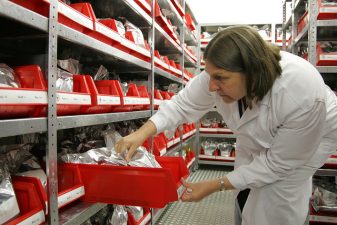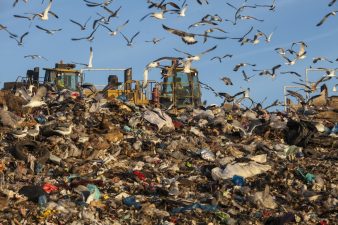 Can hybrid breeding effectively mitigate aspects of climate change? Across the planet, communities face a constant struggle to produce enough food to survive. Harsh climates, insect infestation, and a lack of affordable fertilizers and pesticides mean that crop yields are far lower in developing countries. The scientists at Solynta believe potatoes may be the solution.
Can hybrid breeding effectively mitigate aspects of climate change? Across the planet, communities face a constant struggle to produce enough food to survive. Harsh climates, insect infestation, and a lack of affordable fertilizers and pesticides mean that crop yields are far lower in developing countries. The scientists at Solynta believe potatoes may be the solution.
One in eight people around the world are chronically hungry, and in the future things may get even worse. Human population is expected to increase significantly, and climate change is making it harder than ever to grow healthy crops in more and more regions.
Netherlands-based Solynta is a leading seed breeding company which has developed an innovative technology for targeted breeding of one of the world’s fourth largest staple crops – potatoes. The mighty spud is relatively cheap, highly nutritious, and already eaten in most countries. The Food and Agriculture Organization (FAO) recommends potato cultivation for countries seeking to increase their food security, as they can be grown most anywhere.
Compared to other crops like rice, corn and wheat, potatoes produce far more food per hectare, and far more food per liter of water used, helping feed large numbers of people while also mitigating the effects of climate change. According to the FAO, up to 85 percent of the plant is edible human food, compared to around 50% in cereals.
Potatoes are highly nutritious and contain more of the 21 vitamins and trace elements than any other staple crops. They are rich in carbohydrates, making them a good source of energy, and boast the highest protein content (around 2.1 percent on a fresh weight basis) in the family of root and tuber crops. They are also rich in vitamin C and contain a fifth of the recommended daily value of potassium.
Currently, most potato farmers are forced to rely on poor-quality ‘seed tubers’ – specially-grown potato tubers which are used as starting material, but which are easily perishable and are infected with pests and diseases. The result is low yields.
Solynta’s “True Seed” technology has the potential to help solve all these problems, by delivering potatoes which can double yields over seed-tubers; are more resistant to drought; and require fewer harmful pesticides and fungicides. These hybrid seeds are completely disease-free and are also far easier to store and transport than tubers. On average, 25 grams of True Seeds produces the same crop as 2,500 kilos of seed tubers, resulting in significant reductions in transport costs and carbon emissions.
Agriculture consumes more than 2/3 of total available freshwater through irrigation. Depletion of water reserves could cause a 40% supply gap by 2030. An increase in the proportion of potato in the diet would alleviate pressure on water resources. Also, by breeding natural resistances into the crop there will be a significant reduction (>60%) of pesticide use and therefor limit the runoff of pesticides into the water system.



